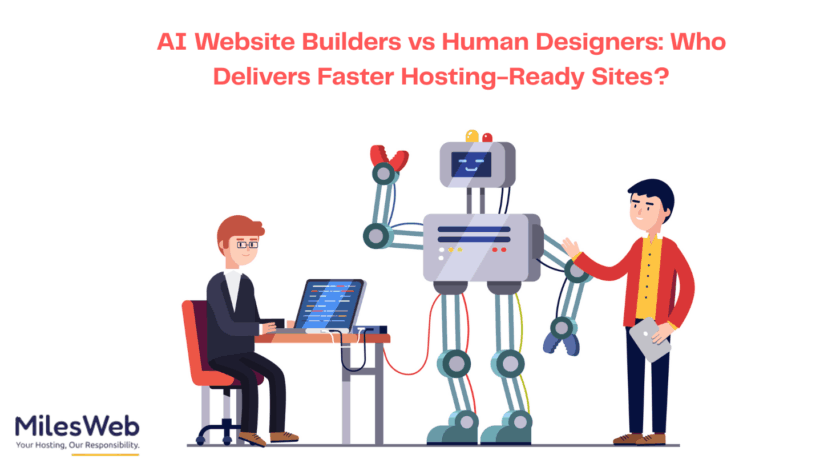- Introduction: A Digital Landscape in Transition
- What Are Generative Engine Optimization Services?
- Why GEO Services Are Crucial Now
- SEO, AEO, and GEO: Understanding the Evolution
- Core Components of GEO Services
- A Practical Example: E-Commerce and GEO
- Benefits of Generative Engine Optimization Services
- Why Now Is the Time for GEO Services
- Conclusion: Leading in the AI Era
Introduction: A Digital Landscape in Transition
The digital search landscape is undergoing a transformation unlike anything we’ve seen before. People no longer depend exclusively on Google or Bing to find information. Instead, they’re asking generative AI platforms like ChatGPT, Google Gemini, and Perplexity for answers – and often getting exactly what they need without ever visiting a website. For brands and marketers, this shift presents a fundamental challenge: how do you stay visible when clicks and rankings are no longer the only markers of discovery?
The answer lies in Generative Engine Optimization Services (commonly referred to as GEO Services). Just as SEO helped businesses thrive in the age of search engines, GEO now ensures your brand is recognized and cited in AI-powered responses.
What Are Generative Engine Optimization Services?
Generative Engine Optimization is the process of adapting and structuring content so that AI models can interpret it, trust it, and reference it in their generated outputs. GEO Services, therefore, are professional solutions designed to help brands achieve this.
Unlike SEO, which focuses on keywords, backlinks, and ranking signals, GEO Services prioritize clarity, authority, and structure. Content is broken down into short, answerable units that AI engines can easily extract. Metadata, schemas, and context are strategically integrated to boost the likelihood of being cited. In short, GEO Services make sure that when AI generates an answer, your brand’s voice is included.
Why GEO Services Are Crucial Now
Search behavior is changing fast. A growing share of online queries never result in a click because AI systems provide instant summaries. This trend, often referred to as the rise of “zero-click searches,” is magnified by generative AI, where the entire answer lives within the platform.
For businesses, this means relying only on SEO will no longer guarantee visibility. You may have a high-ranking article, but if AI doesn’t surface it in its responses, your reach is limited. GEO Services bridge this gap by ensuring your content isn’t just visible to search engines, but to AI-driven systems that increasingly shape user decisions.
SEO, AEO, and GEO: Understanding the Evolution
To understand where GEO fits in, it helps to look at the progression:
● Search Engine Optimization (SEO) was about visibility in search engine results. Through careful keyword targeting, link building, and technical tuning, businesses climbed rankings and secured clicks.
● Answer Engine Optimization (AEO) came next, focusing on featured snippets, voice assistants, and other formats where search engines gave users direct answers. Content had to be concise, structured, and schema-friendly.
● Generative Engine Optimization (GEO) is the latest evolution. Here, the goal is not ranking or snippets, but being part of AI-generated answers. GEO ensures that generative engines reference your brand when summarizing or recommending information.
Together, these approaches don’t compete—they layer. SEO still builds a foundation, AEO captures direct answers, and GEO Services extend visibility into the AI-first ecosystem.
Core Components of GEO Services
Professional GEO Services typically include several interconnected strategies:
1. AI-Friendly Content Structure
Content is formatted into short, digestible sections with clear headings, lists, and FAQs. This makes it easier for AI to extract accurate information.
2. Entity and Context Clarity
Topics are defined precisely, with clear terminology and context. This boosts topical authority and ensures AI understands the relevance of your content.
3. Schema and Metadata Integration
By embedding structured data such as JSON-LD and FAQ markup, GEO Services give AI additional context, increasing the chance of citations.
4. Prompt Engineering Awareness
Content is designed with the phrasing of user queries in mind. GEO Services anticipate how questions are asked and format content accordingly.
5. Citation Tracking and Refinement
Using AI-monitoring tools, services track when and how content is cited in generative platforms. Insights from this process guide ongoing refinements.
6. Holistic Integration with SEO and AEO
GEO does not replace SEO or AEO; instead, it strengthens them. GEO Services bring together all three approaches for comprehensive coverage.
A Practical Example: E-Commerce and GEO
Consider an e-commerce company specializing in eco-friendly products. Traditionally, they might have optimized a blog for keywords like “best reusable water bottles.” With GEO Services, the approach changes.
The service would:
● Identify likely AI queries such as “What are the best eco-friendly water bottles in 2025?”
● Develop short, factual sections answering the question directly.
● Use schema markup to structure product comparisons.
● Test prompts across ChatGPT and Perplexity to ensure visibility.
● Continuously monitor AI responses and refine content to secure citations.
The result? When users ask AI for product recommendations, the company’s brand is referenced in the generated answer—even if the user never clicks through to a search result.
Benefits of Generative Engine Optimization Services
1. Increased Mentions in AI Responses
Your brand becomes part of conversations happening across AI platforms, increasing exposure even without direct clicks.
2. Enhanced Trust and Authority
Being cited in AI responses positions your brand as an authoritative voice within your industry.
3. Faster Visibility
Traditional SEO can take months to show results. AI systems that draw from fresh data can surface optimized content much more quickly.
4. Future-Proof Marketing
GEO Services prepare your brand for the next wave of search behavior, ensuring relevance even as traditional SEO value declines.
Why Now Is the Time for GEO Services
Waiting to adopt GEO is risky. Analysts already predict a steady decline in traditional search usage as AI adoption accelerates. By 2026, a significant portion of queries will be answered entirely by generative engines. Businesses that invest in GEO Services today will establish authority before the market becomes saturated.
Early adopters benefit from two key advantages:
● First-Mover Authority – brands already cited frequently by AI become entrenched as trusted sources.
● Learning Curve – GEO is still new, and refining strategies now gives businesses a head start while competitors lag.
Conclusion: Leading in the AI Era
The rules of digital visibility have changed. Being discoverable in 2025 means being present not only in search results but also in AI-generated answers. Generative Engine Optimization Services provide the tools, structure, and strategy to achieve this.
For businesses, adopting GEO is not simply about staying relevant—it’s about leading. Those who embrace GEO Services now will be the ones shaping conversations, driving awareness, and securing authority in the AI-driven future.



